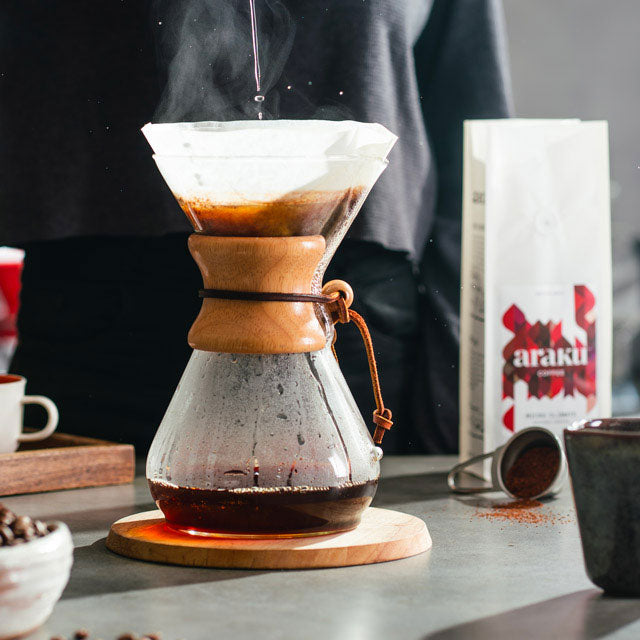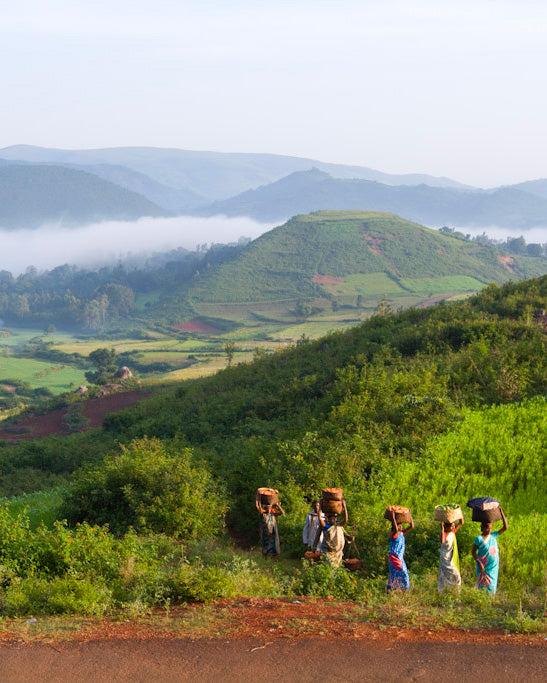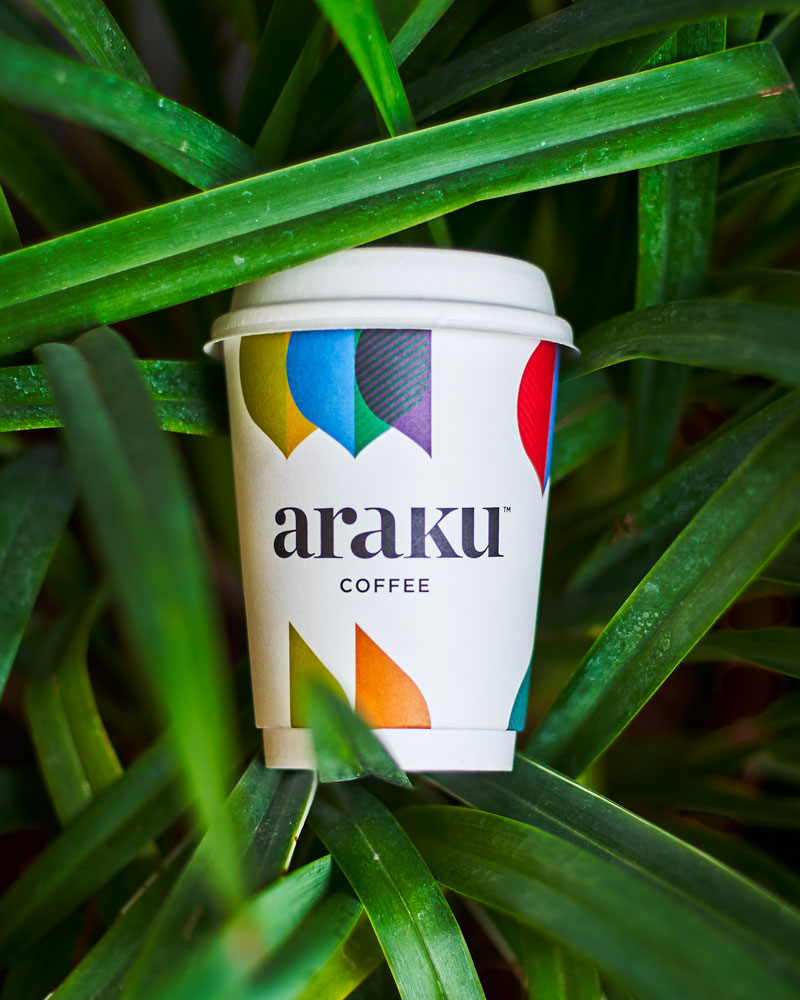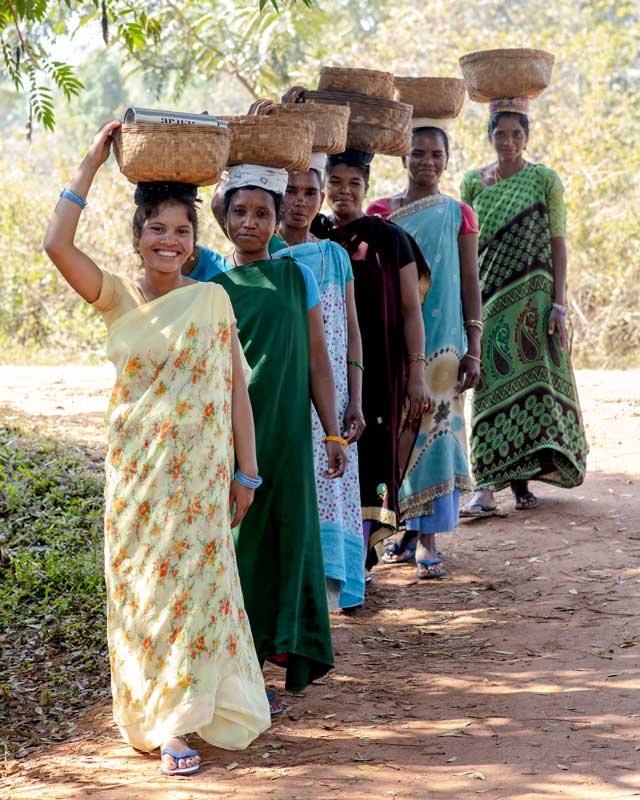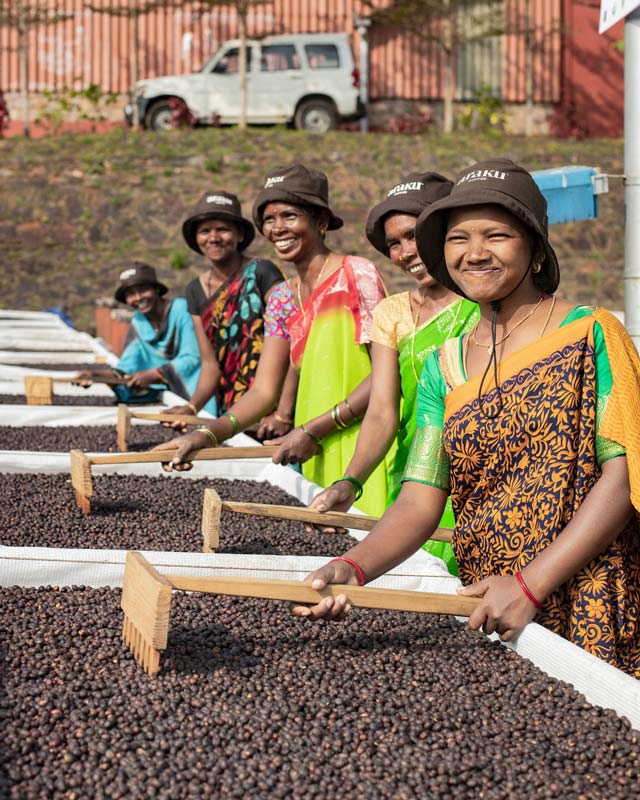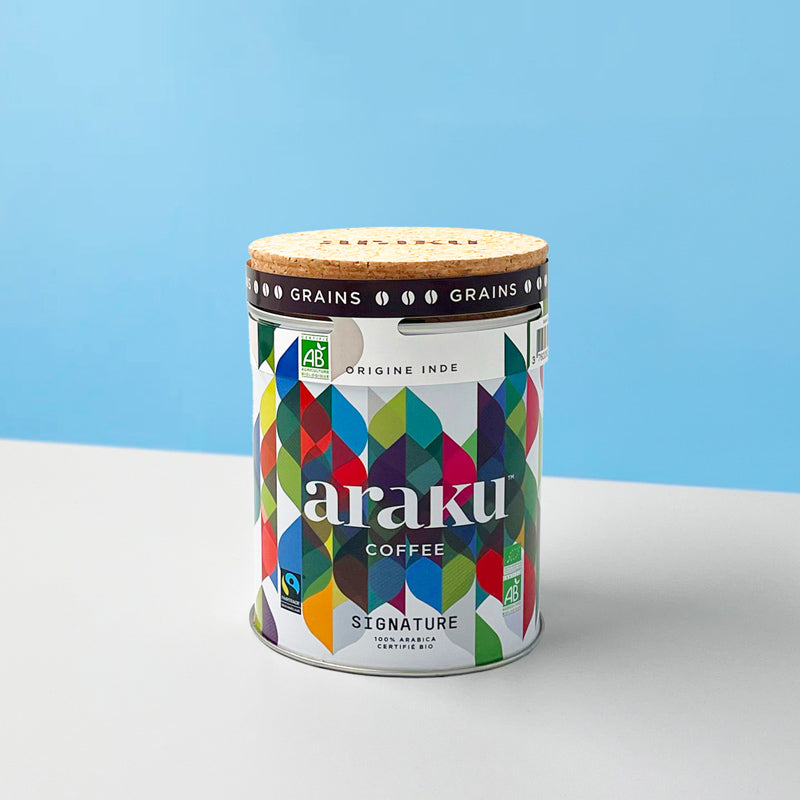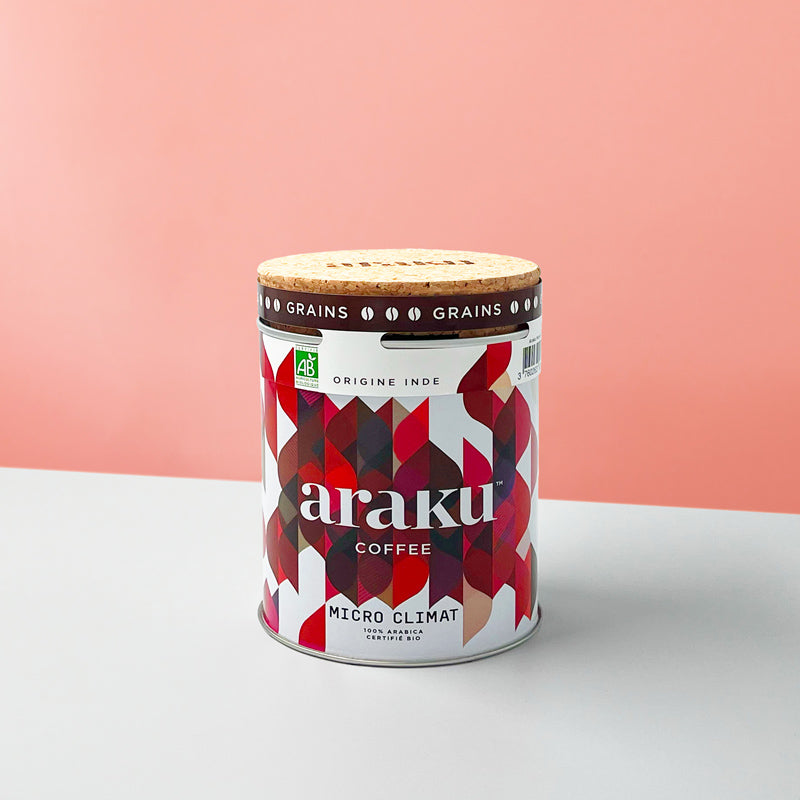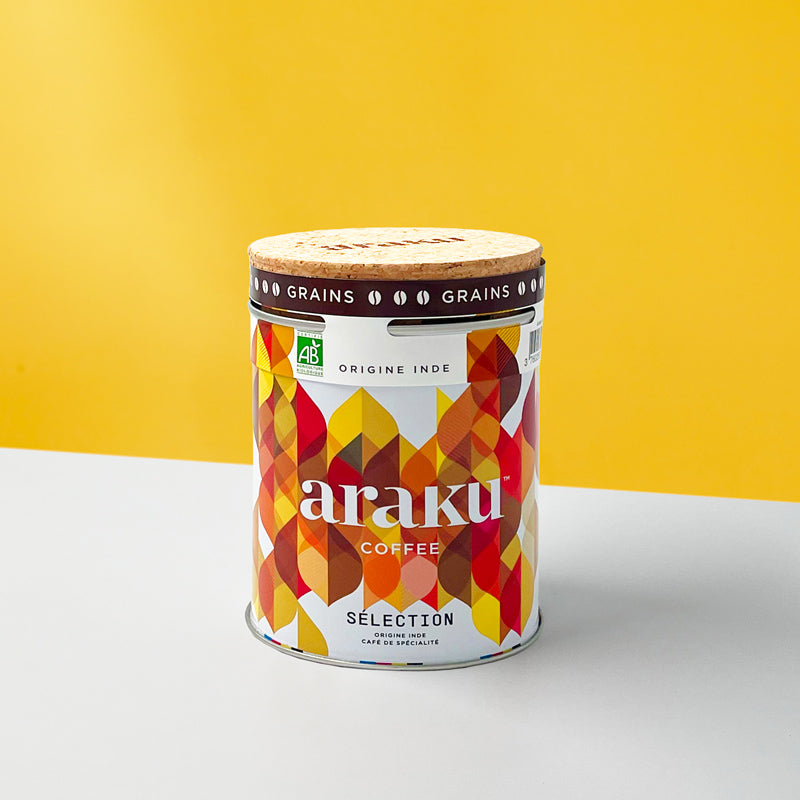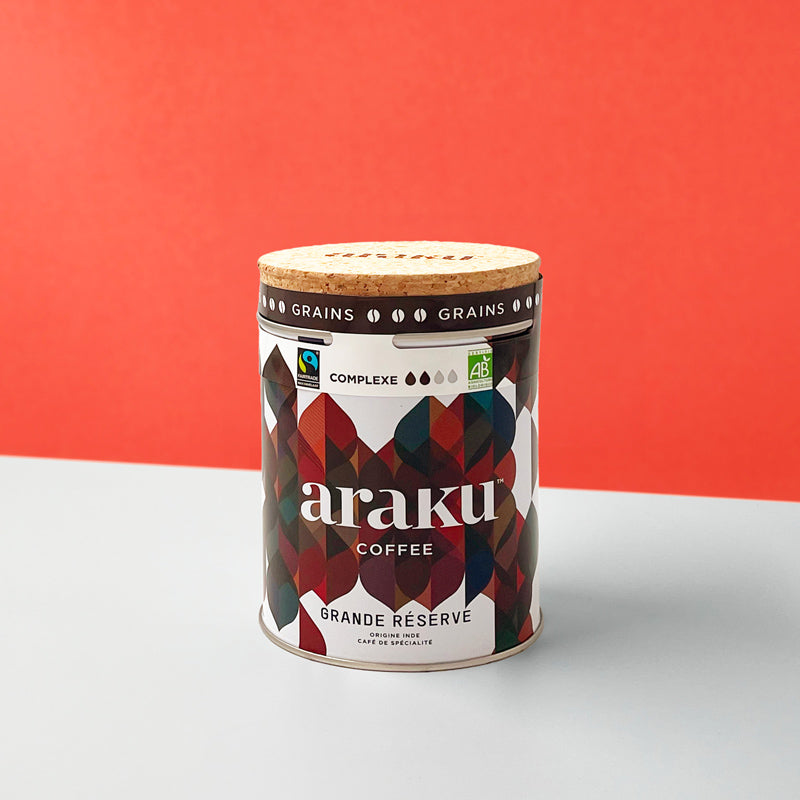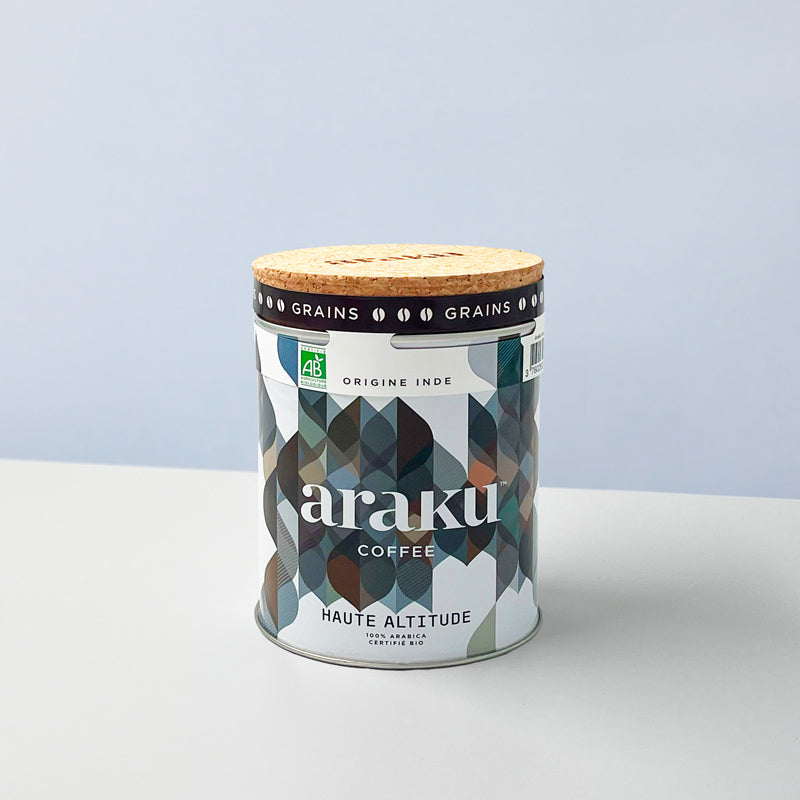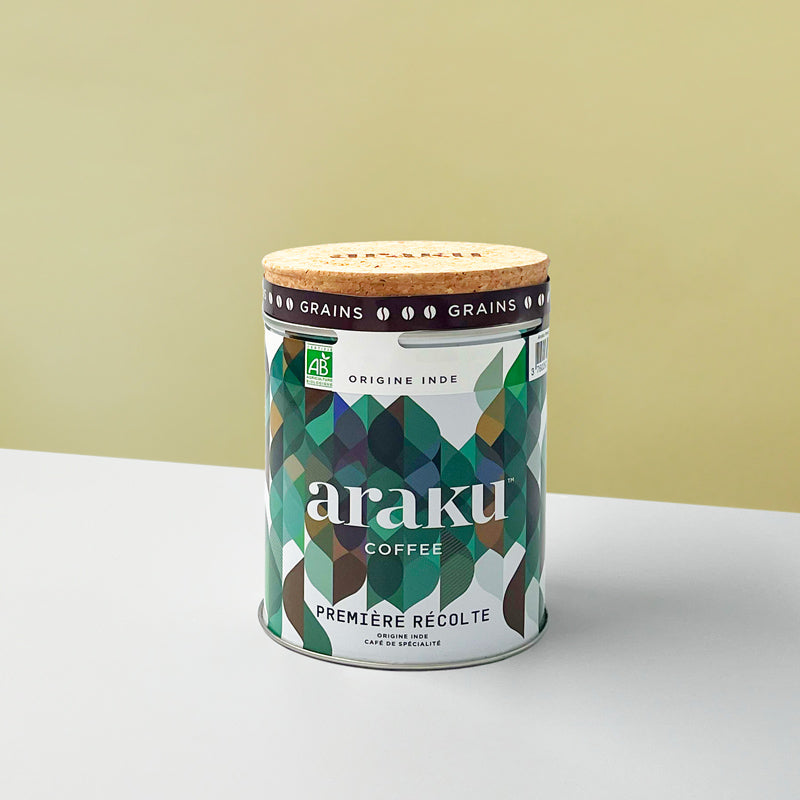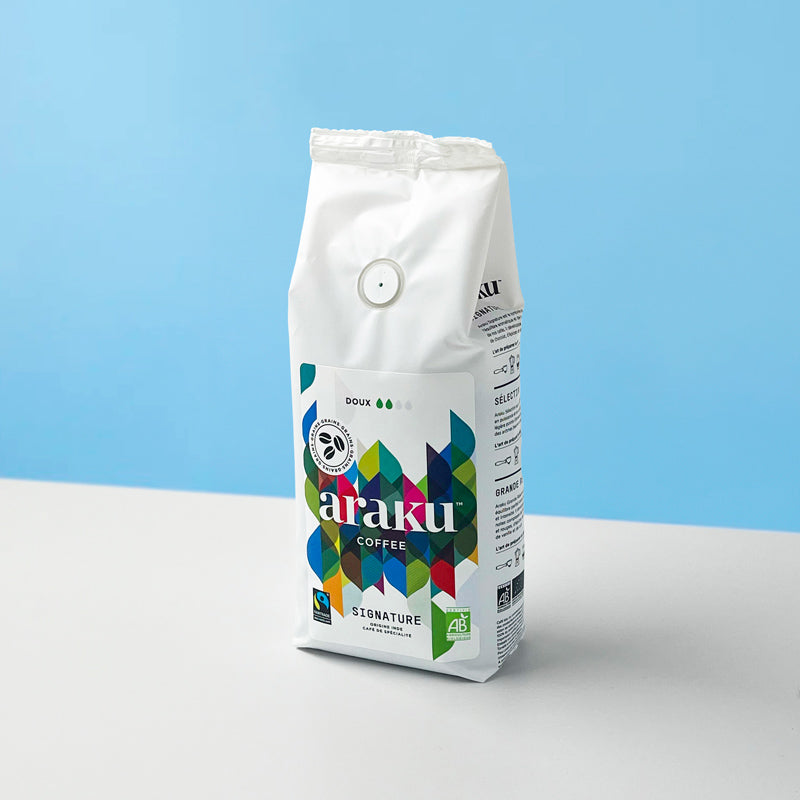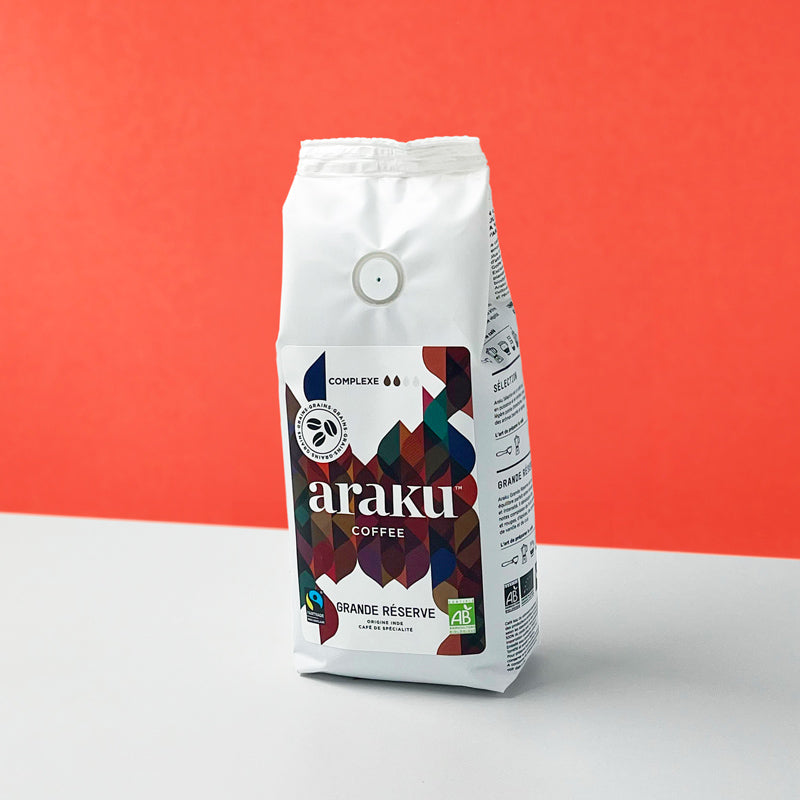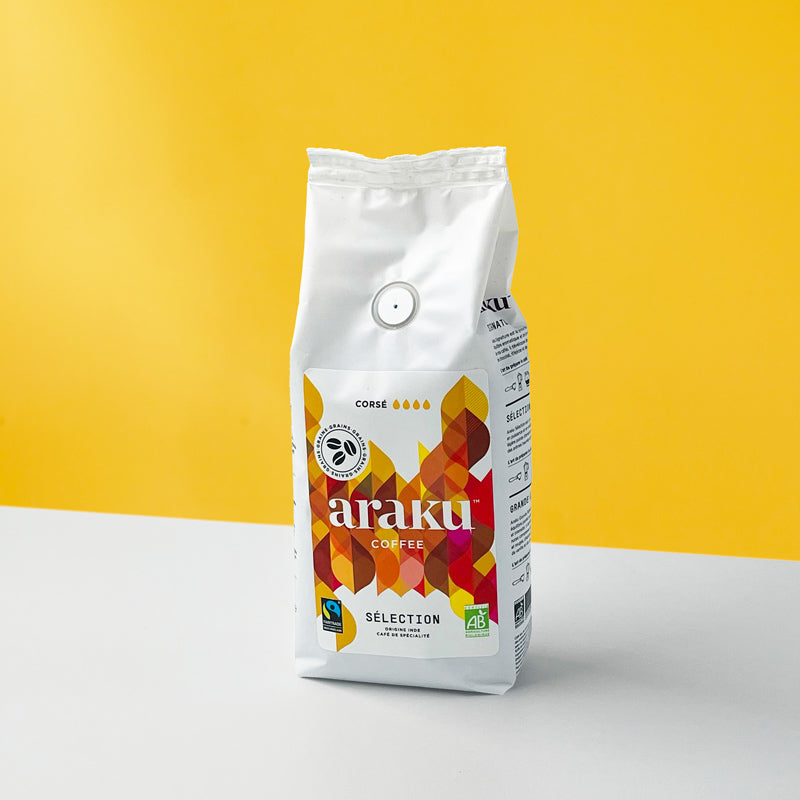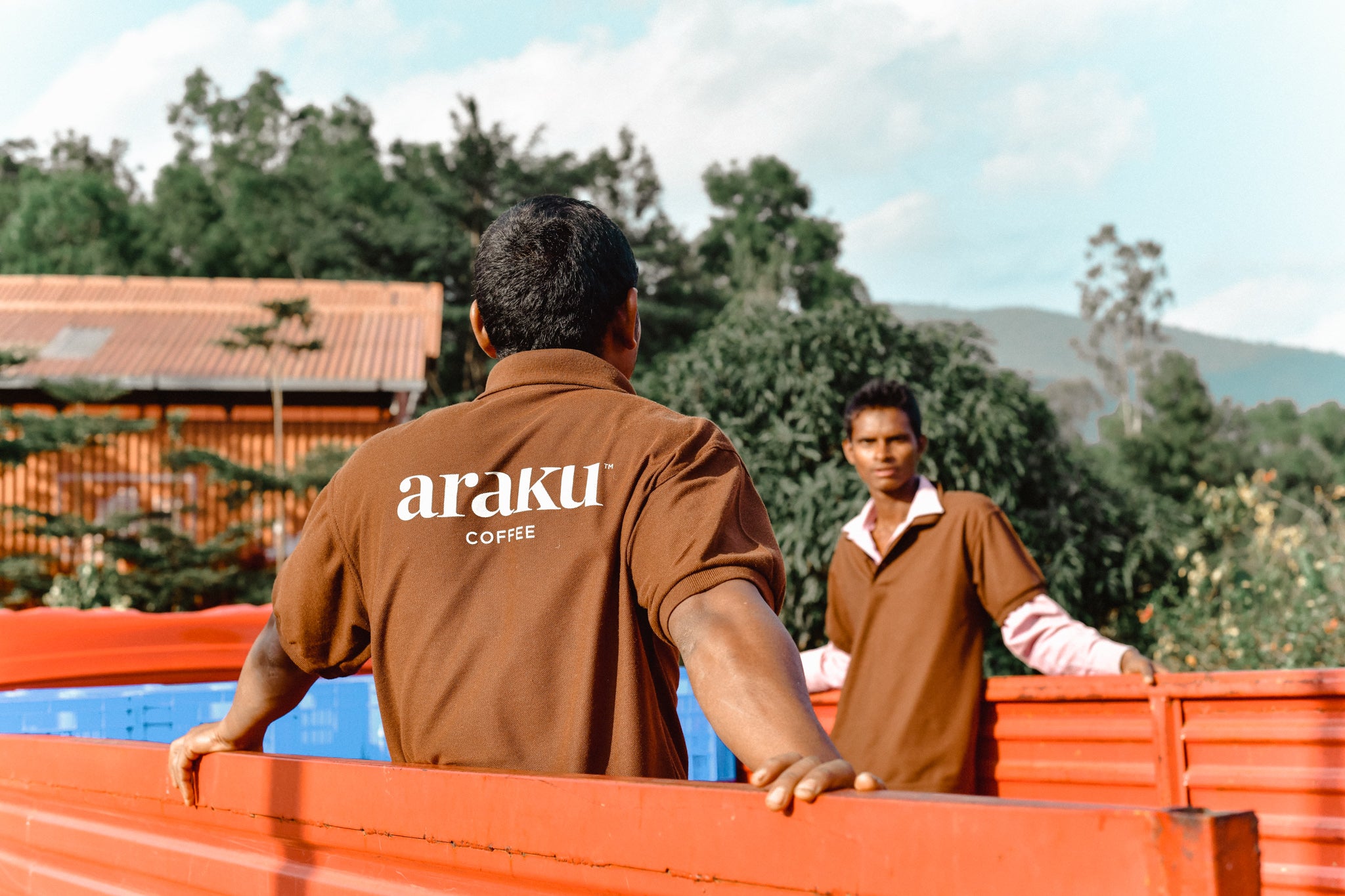INDIA, A HISTORICAL COFFEE ORIGIN
India is the third country to have historically planted coffee trees after Ethiopia and Yemen. India is considered by experts as a “great origin” , celebrated for its exceptional coffees. Indian coffee offers a unique aromatic signature combining balance, sweetness, a full body and some subtle spicy notes. Today, Araku strives towards sharing these amazing coffees produced in India with the world, which is unfortunately still a relatively unknown origin for consumers.
THE ARAKU VALLEY, A LAND OF SEA AND MOUNTAINS
In the east of India, on the high plateaus of the Eastern Ghats overlooking the Bay of Bengal, the Araku valley extends over more than 350km2. Classified as a Protected Natural Reserve since 1995, the valley is recognized for its purity, biodiversity and fertility. In the local language, Araku means “red earth”. A colorful identity that the brand has chosen to express.
The valley's preserved ecosystem is ideal for growing coffee. Thanks to its high altitude climate - hot during the day and cool at night - and its naturally rich in iron soil, the Araku valley allows for a slow maturation which gives the coffee its full body, its intensity, its aromatic richness and its sweetness.
The valley is blessed with great biodiversity and dense forests. Among other things, silver oaks, mango trees and eucalyptus trees surround our coffee plantations and provide essential shade for growing our exceptional coffees.
ANCESTRAL KNOW-HOWS AND MANUAL HARVESTING
Araku coffee plantations spread over more than 520 villages. The valley's farmers come from ancestral tribes and cultivate their soil as their parents and grandparents did before them. Their agriculture is small-scale and focuses on respecting their environment. It is designed in harmony with nature and based on manual labor. No machines and no chemicals are used.
And they are fairly compensated for their meticulous work! Our core mission has always been to ensure our producers get their fair share. After all they are the ones behind our exceptional organic coffees!
BIODYNAMICALLY GROWN COFFEES
To go even further in this respect for nature, David Hogg, expert in biodynamic agriculture, introduced farmers to the principles of this type of agriculture. Araku is today the largest certified organic and biodynamic coffee plantation in the world.
Invented by Rudolf Steiner in 1924, biodynamic agriculture is considered to be the next step in organic agriculture. It is a set of natural processes to promote the quality and health of the crops. Man and nature work together to nourish and support the crops at every stage of their development. They place them at the heart of a healthy and balanced ecosystem, in cohesion with the cycles of life. Thus, Araku coffee trees flourish in the best possible conditions. And each coffee they produce has a unique flavor profiles.



